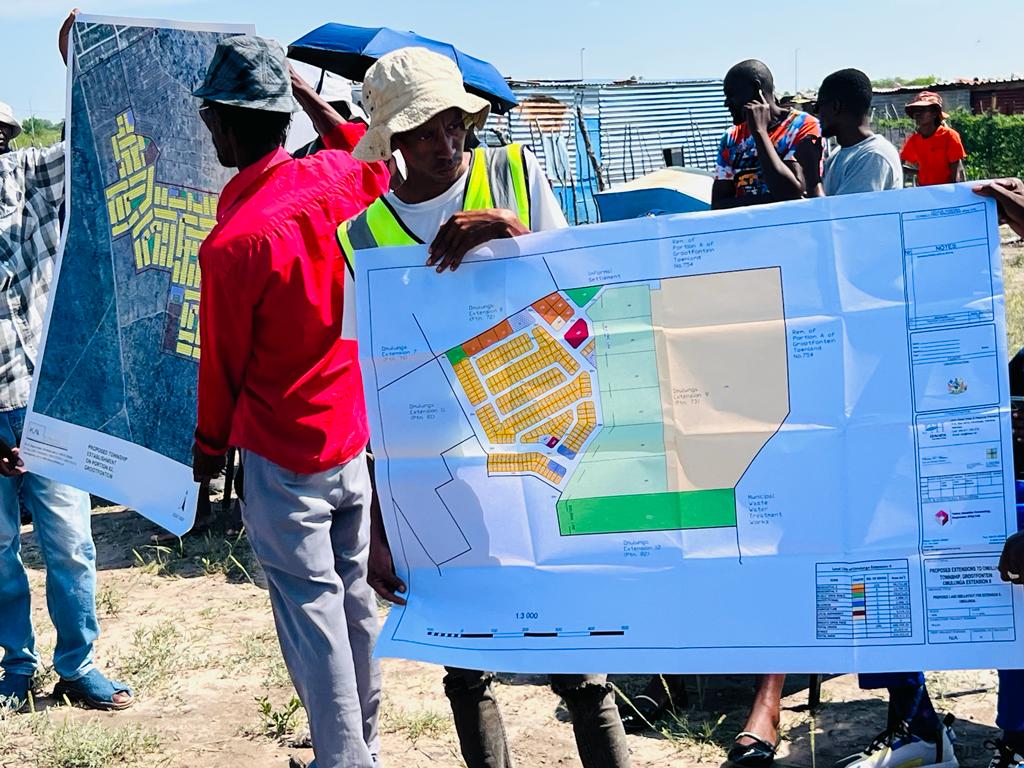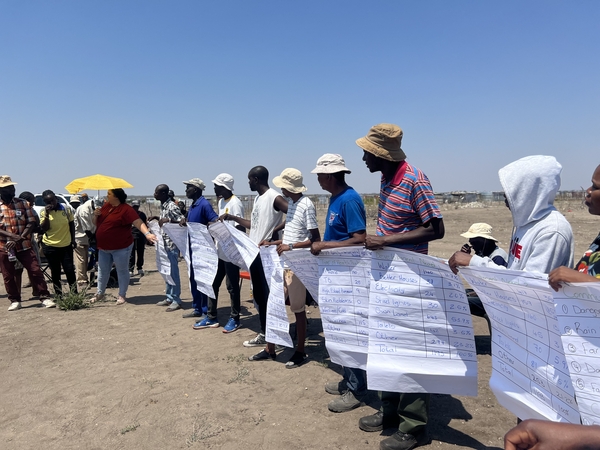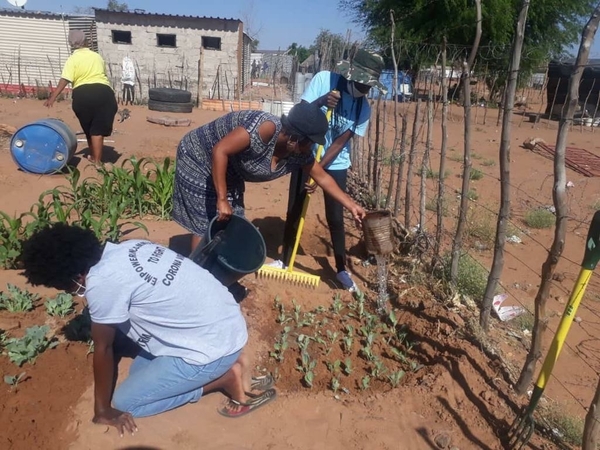- Who We Are
- How We Work
- Regional / Country Initiatives
- Legacy
- Core Themes
- Working Groups
- Portfolio & Results
- Newsroom
- Resources
Namibia: Sustaining Community-Driven Actions in Informal Settlements

Project Overview
In Namibia, rapid urbanisation has driven a substantial portion of the population into informal settlements, where access to livelihoods and basic services is minimal, a situation that was exacerbated by the Covid-19 pandemic. With urbanisation nearing 50%, most inhabitants reside in shacks and informal settlements, with 89% unable to afford market-related housing and land solutions.
The project aims to empower the urban poor by enhancing their ability to sustain projects, improve food security, and raise awareness about nutrition. It addresses infrastructure and shelter issues through community-driven initiatives and partnerships. Additionally, the project seeks to influence policies to improve tenure security and shelter conditions for vulnerable communities. The project is implemented by Shack Dwellers Federation of Namibia (SDFN) and Namibia Housing Action Group (NHAG).
This project is part of the Building Resilience in Informal Settlements Programme, a partnership between Cities Alliance and Slum Dwellers International (SDI), funded by the Swedish International Development Cooperation Agency Sida), to support civil society organisations working in informal settlements

Project Results: 2022-2024
Through the KYC initiative, 4 city and 13 settlement profiles as well as 4 settlement enumerations supported data-driven decisions. The project installed sewers and connected 290 prepaid water meters, funded by Karibib Town Council and Osino Resources. Water and sewer services were extended to green fields in Otjinene, Khorixas, Outjo, Walvis Bay, Gobabis, and Arandis, with NHAG's support.
Housing progress includes 202 supported houses, 134 completed, and plans for 1,300 more with N$52 million in funding and NHAG's technical support. Meetings with authorities in Walvis Bay, Windhoek, and regional councils addressed land servicing and housing projects. In total, there were 1566 households with improved water and sanitation, 382 households with improved tenure, 797 households with improved housing and 471 households with improved energy. Energy and waste management solutions include solar energy systems for homes, public spaces and water pumps and composters.
More efforts focused on network strengthening, leadership development, and new group formations. Improved loan repayments and increased savings were noted in 79 savings groups with 2,506 savers across 28 settlements. Alongside, 101 youth members were supported. The project also created a backyard gardening guide and trained members in permaculture gardening in Okahandja, Oshakati, Grootfontein, Ongwediva, Outjo, and Otjiwarongo.
The federation was also strengthened through 60 leadership meetings, while the communities profited from 47 settlement forums, 9 advocacy campaigns and 15 youth initiatives. Additionally, 93 people were trained to address climate change, 108 people were supported to adapt to climate change and 953 learning exchanges gathered 19,098 individuals engaging in peer learning.

Improved Climate Change Adaptation and Youth-Led Awareness Campaigns in Namibia
Youth in the community have taken a proactive role in raising awareness about climate change through educational videos and social media campaigns. Their efforts focus on spreading knowledge about climate-related challenges, such as heatwaves and floods, and promoting practical adaptation strategies. By leveraging platforms, they have reached a broader audience, emphasising the importance of water conservation and environmental protection.
The federation played a crucial role in equipping the youth with the necessary training and tools to create impactful content and take leadership in climate action. This initiative demonstrates the power of youth engagement and social media in raising awareness and encouraging community-wide responses to climate change challenges.
Advocacy also helped uniting community members, local government and academic institutions in informal settlement planning studios to address environmental risks. This endeavour resulted in 3 climate-resilient spatial layouts for the towns.
Key Achievements: 2022-2024
- 79 savings groups and 2,506 savers supported
- 101 youth members mobilised and supported
- 1,566 households with improved water and sanitation
- 382 households with improved tenure
- 797 households with improved housing
- 471 households with improved access to energy
- 93 people supported through networking and training to address climate change or to conserve biodiversity
- 108 people supported to better adapt to the effects of climate change
- 4 cities and 47 settlements profiled and 15 settlements enumerated
- 47 settlement level information forums or campaigns
- 9 city or national level advocacy campaigns conducted
- 15 content creating initiatives involving youth
- 60 regional or national level federation leadership meetings were held
- 953 peer-to-peer learning exchanges with 19,098 individuals
